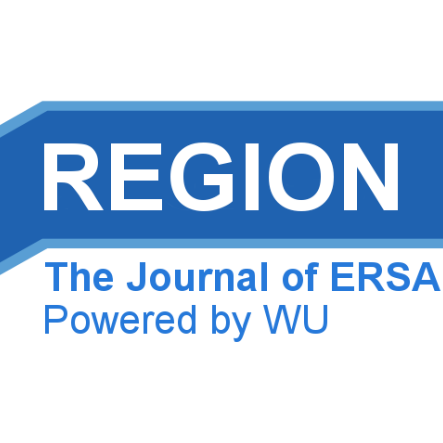The Mediterranean Variety of Capitalism, Flexibility of Work Schedules, and Labour Productivity in Southern Europe
DOI:
https://doi.org/10.18335/region.v5i3.204Abstract
Sociology has long been used to highlight the existence of diverse institutional models between geographical areas of Europe in terms of work organisation. Based on this, we propose to compare the situation of four representative countries of southern Europe (Spain, Italy, Greece and Portugal) with that of the rest of Europe, by addressing the number of hours worked and the flexibility of working hours as key elements of their institutional model of work organisation, as well as their impact on levels of labour productivity. Taking the model of the varieties of capitalism as a reference, this study compares the behaviour of the Mediterranean (southern) countries with other European regions. Indicators have been obtained from the 2010 and 2015 waves of the European Work Conditions Survey (EWCS) that include the number of hours worked, the flexibility in the hours of entry and exit, and the tendency to work the same number of hours per day. After comparing averages in both waves and applying linear regressions, the following conclusions have been reached: (1) Productivity in southern countries is on a par with the European average but far from the more corporatist and liberal (northern) areas; (2) the South maintains a high average of hours worked (above the European average) to compensate for the poor productivity of its hours; and (3) the incorporation of flexible schedules is associated with elevated levels of productivity.
Published
How to Cite
Issue
Section
License
Copyright (c) 2018 Alberto Vallejo-Peña, Sandro Giachi

This work is licensed under a Creative Commons Attribution-NonCommercial 4.0 International License.
REGION is an open journal, and uses the standard Creative Commons license: Copyright We want authors to retain the maximum control over their work consistent with the first goal. For this reason, authors who publish in REGION will release their articles under the Creative Commons Attribution license. This license allows anyone to copy and distribute the article provided that appropriate attribution is given to REGION and the authors. For details of the rights authors grant users of their work, see the "human-readable summary" of the license, with a link to the full license. (Note that "you" refers to a user, not an author, in the summary.) Upon submission, the authors agree that the following three items are true: 1) The manuscript named above: a) represents valid work and neither it nor any other that I have written with substantially similar content has been published before in any form except as a preprint, b) is not concurrently submitted to another publication, and c) does not infringe anyone’s copyright. The Author(s) holds ERSA, WU, REGION, and the Editors of REGION harmless against all copyright claims. d) I have, or a coauthor has, had sufficient access to the data to verify the manuscript’s scientific integrity. 2) If asked, I will provide or fully cooperate in providing the data on which the manuscript is based so the editors or their assignees can examine it (where possible) 3) For papers with more than one author, I as the submitter have the permission of the coauthors to submit this work, and all authors agree that the corresponding author will be the main correspondent with the editorial office, and review the edited manuscript and proof. If there is only one author, I will be the corresponding author and agree to handle these responsibilities.




